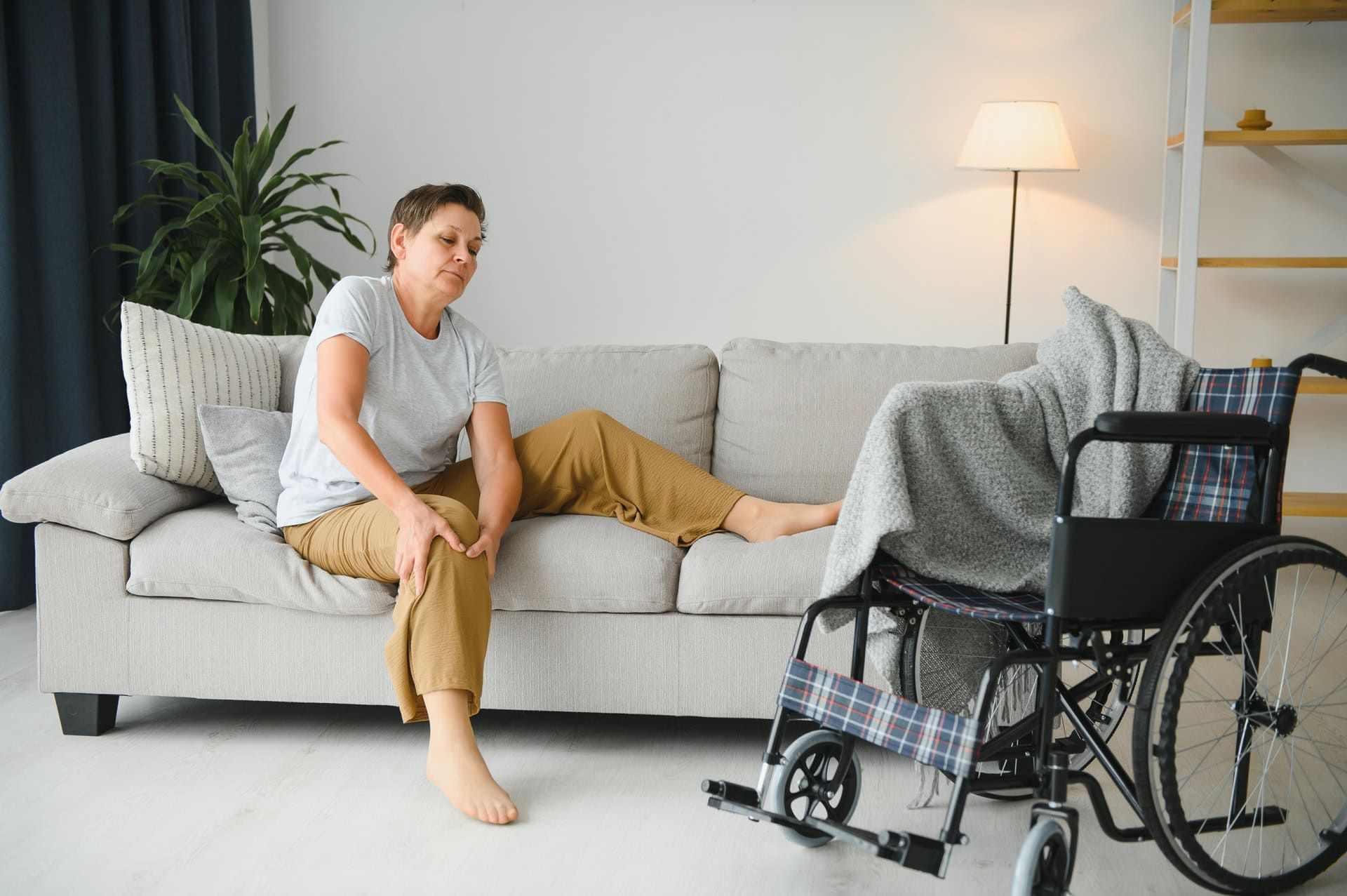Understanding Home Care: What Is It and How Does It Work?
Home care, what is it? It is non-medical assistance that helps people stay at home safely and comfortably. It includes services like personal care, companionship, and homemaking. These services benefit seniors, those with disabilities, and people recovering from surgery, allowing them to maintain their independence. This article will explain what home care is, the types of services offered, and how it compares to other care options.
Key Takeaways
- Home care encompasses a range of non-medical services designed to assist individuals with daily living activities, enabling them to maintain independence in their own homes.
- Key components of home care include personal care, homemaking services, and companionship, each contributing to the overall well-being and quality of life of clients.
- Choosing the right home care provider requires thorough evaluation of agencies, services offered, and caregiver qualifications to ensure tailored and effective support.
Defining Home Care

Home care provides assistance with daily activities to help individuals remain safe at home, encompassing a range of non-medical services designed to assist with daily living activities. The primary focus of home care services is to support individuals in their own home environment, enabling them to maintain independence and quality of life without the need for institutionalized care.
Unlike home health care, which often requires a doctor’s referral and involves medical services, home health visits typically do not require such a referral and focuses more on non-medical support.
Types of Home Care Services
Home care services come in various forms, each addressing different needs. The main types include:
- Personal care, which involves hands-on assistance with bathing, grooming, and mobility, ensuring that individuals can perform daily tasks safely and comfortably.
- Companion care, which provides social interaction and emotional support, crucial for mental well-being.
- Homemaking services, which cover tasks like cleaning, meal preparation, and grocery shopping, helping to maintain a clean and safe home environment.
These services are vital for helping individuals maintain their independence and quality of life while living in their own homes. Often referred to as senior home care or homemaker care, these services ensure that all aspects of daily living are covered, from hands-on personal needs to hands-off tasks like transportation.
By addressing both physical and emotional needs, home care services play a significant role in enhancing the overall well-being of clients.
Who Can Benefit from Home Care?
Home care services are particularly beneficial for older adults with chronic illnesses, individuals with disabilities, and those recovering from surgery. Seniors and those with disabilities are the primary beneficiaries, as these services enable them to perform daily tasks safely and maintain a level of independence that might not be possible otherwise. Support with daily activities allows these individuals to remain in their own homes, surrounded by familiar comforts.
Moreover, home care is not limited to the elderly. People of all ages who have undergone surgery or are dealing with chronic illnesses can benefit from the tailored support that home care provides. This service allows them to recover and manage their conditions in a comfortable and familiar environment, enhancing their overall quality of life.
The flexibility and personalized nature of home care make it a viable option for anyone needing assistance with daily living activities.

Key Components of Home Care
Recognizing the key components of home care helps understand how it meets the diverse needs of individuals. These components include personal care, homemaking services, and companionship. Each plays a crucial role in ensuring that clients receive comprehensive support tailored to their unique situations.
Personal care encompasses assistance with daily activities like bathing, grooming, and mobility. Homemaking services focus on maintaining a clean and safe home environment through tasks such as cleaning, grocery shopping, and meal preparation. Companionship offers social interaction and emotional support, which are vital for mental well-being.
Together, these components form a holistic approach to home care.
Personal Care
Personal care services are fundamental to home care, providing essential support for daily activities. These services include assistance with bathing, feeding, dressing, grooming, and incontinence care. A comprehensive evaluation of the individual’s health status by a home health agency ensures that specific care requirements are identified and addressed. This detailed assessment helps tailor the care plan to meet the unique needs of each individual, ensuring that they receive the right level of support.
Additionally, checking the training and certifications of caregivers provided by the home health agency is important. Caregivers who have undergone proper training and background checks enhance the reliability and quality of care. Many states have specific requirements for personal care staff, including training and continuing education, which helps maintain high standards in home care services.
Homemaking Services
Homemaking services are essential non-medical services that help individuals maintain their home environment.
These services typically include tasks such as:
- Cleaning
- Grocery shopping
- Meal preparation
- Laundry
- Dishwashing
Assistance with essential daily tasks from homemaking services contributes to a safe and healthy living environment, enabling individuals to continue living independently.
Maintaining a clean and organized home is crucial for the well-being of elderly individuals or those with disabilities. Homemaking services ensure that clients can live in a safe, hygienic environment without the physical strain of managing these tasks themselves. This support not only enhances their quality of life but also reduces the risk of accidents and health issues.
Companionship
Companion care focuses on providing social interaction and emotional support to individuals. This aspect of home care is particularly important for those who live alone or may feel isolated. Personalized home care enables patients to receive tailored treatment that addresses their unique needs, fostering trust and effectiveness in care. Companionship services often involve participating in hobbies, engaging in conversations, and accompanying clients on outings, all of which can significantly improve their overall well-being.
Emotional support from companion care can enhance mental well-being for older adults. The presence of a caregiver who provides companionship helps alleviate feelings of loneliness and depression, fostering a sense of connection and community. This support is crucial for maintaining a positive outlook on life and ensuring that clients feel valued and cared for.

Differences Between Home Care and Other Care Options
Exploring the differences between home care and other care options helps in making informed decisions regarding the best type of care for your loved ones. Home care primarily focuses on assisting with daily living activities, whereas other care options like home health care and skilled nursing facilities offer varying levels of medical support and living arrangements.
These differences help you better assess which care option aligns with the specific needs and preferences of the individual requiring care. This comparison sets the stage for a deeper dive into the distinctions between home care, home health care, and skilled nursing facilities.
Home Care vs. Home Health Care
Home care and home health care, though similar in name, offer different types of support. Home care provides non-medical services, assisting individuals with daily caregiving tasks like bathing, housekeeping, and companionship. On the other hand, home health care offers medical support by licensed professionals, including nursing and therapy services. This distinction is crucial for families to understand when deciding the level of care needed.
Home health care often requires services to be delivered by licensed healthcare professionals, including physical therapists, focusing on the medical needs of the individual. Examples include wound care, physical therapy, and administering medications. In contrast, home care focuses more on non-medical support, allowing individuals to maintain a degree of independence while receiving necessary daily assistance.
Home Care vs. Skilled Nursing Facilities
Home care and skilled nursing facility offer different environments and levels of care. Home care provides in-home support that prioritizes the comfort and familiarity of the client’s environment, helping individuals maintain their independence. Skilled nursing facilities, however, deliver comprehensive medical care in an institutionalized setting. This environment may be necessary for individuals requiring constant medical supervision and skilled nursing care.
Choosing home care allows individuals to stay in their own homes, surrounded by familiar comforts, while still receiving the necessary assistance. This option is often preferred over more institutionalized living arrangements, as it supports the individual’s desire for independence and personal space.
Choosing a Home Care Provider
Selecting the right home care provider is a critical step in ensuring quality care for your loved ones. When choosing a provider, it’s essential to specify the required services, scheduling preferences, and contingency plans for missed shifts. Working through a reputable agency can help ease the burden of vetting home care providers and ensure quality care.
Effective communication and strong social skills are essential for good home care, as they help build rapport with clients and understand their needs. This section will guide you through evaluating home care agencies and asking the right questions to find the best match for your needs.
Evaluating Home Care Agencies
Thorough vetting of home care providers is crucial in ensuring you select a reliable agency. Start by checking the agency’s credentials and looking into their caregiver training programs to ascertain the level of care your loved one can expect. Regulations for personal care providers vary by state, so it’s important to ensure that the agency complies with local requirements.
Inquire about the agency’s procedures for conducting background checks on caregivers to ensure they are qualified and trustworthy. Additionally, ask about their policies for caregiver replacements in case of last-minute cancellations to ensure continuity of care.
Questions to Ask Potential Providers
Selecting the right home care provider involves evaluating their qualifications, matching their services to specific needs, and considering caregiver compatibility. Asking potential providers about their experience, qualifications, and compatibility with the individual’s needs is crucial. Understanding how the provider handles personal and medical emergencies is also crucial for ensuring the safety and well-being of your loved ones.
Some home health agencies allow patients to choose their own attendants, which can enhance comfort and trust. This flexibility can be particularly beneficial in building a strong, supportive relationship between the caregiver and the client.

Benefits of Home Care
Home care offers numerous benefits, making it a preferred choice for many families. The ability to customize services to meet the individual needs of clients is a significant advantage. This tailored approach not only fosters independence but also significantly improves the overall quality of life for clients.
Another key benefit is the relief it provides to family caregivers, who can rely on professional assistance for essential activities and ongoing support. Home care services help alleviate the burden on family members, allowing them to focus on their relationship with their family member rather than being primary caregivers.
Enhancing Quality of Life
Home care services are particularly beneficial for those who wish to maintain their independence while receiving support. Homemaking services can significantly improve the quality of life for elderly individuals by ensuring a clean, safe, and organized home environment. These home health care services reduce the risk of accidents and health issues, allowing clients to continue living safely in their own homes.
Companionship services also play a crucial role in enhancing quality of life. Companion care helps alleviate feelings of loneliness and depression by offering social interaction and emotional support. Engaging in hobbies and activities with clients can improve their mental well-being and overall sense of happiness.
The combination of personalized attention, companionship, and a comfortable environment significantly enhances the overall quality of life for home care clients.
Cost-Effectiveness
Home care is generally more economical than skilled nursing facilities, making it a favorable option for those who need less intensive support.
Typical payment options for in-home care services include:
- Direct payment
- Private pay
- Long-term care insurance
- Veterans benefits
- Medicaid
- Private insurance plans
This variety of payment methods ensures that home care can be accessible to those who need it.
Most non-medical home care services are paid for privately, although some long-term care policies may cover these costs. Medicaid coverage for in-home care services varies by state, and most states include qualifiers for these services. Payment for home care services can be made through private pay options or coverage by hospital insurance.
How to Get Started with Home Care
Initiating home care involves a few key steps that ensure the services provided meet the specific needs of the individual. The process typically includes an initial assessment, creating a personalized care plan, and finding the right provider. Understanding these steps can help families make informed decisions and ensure that their loved ones receive the best possible care.
The first step is often a thorough assessment to determine the individual’s needs. This assessment helps identify the types of support required and lays the groundwork for creating a tailored care plan.
Finding the right provider involves evaluating potential agencies and caregivers to ensure they are a good fit for the individual’s needs and preferences.
Initial Assessment
A thorough assessment is crucial for determining the specific care needs of the individual requiring home care. This assessment often involves evaluating the person’s daily living skills, medical conditions, and overall health status. It provides a comprehensive understanding of what type of assistance is required, whether it’s personal care, homemaking services, or companionship.
During the initial assessment, a home care professional may conduct a free phone consultation or an in-person visit to gather detailed information about the individual’s needs. This tailored assessment can lead to more effective home care, ensuring that the services provided meet the unique needs of individuals and facilitate a smooth transition to receiving home care.
Creating a Care Plan
Creating a personalized care plan is the next critical step in the home care process. This plan outlines the specific types of support needed and sets achievable goals for the individual’s care. It should detail the necessary services, such as personal care, homemaking, or companionship, and establish clear objectives for the individual’s well-being.
A care plan is often developed with input from licensed medical professionals, family members, and the individual receiving care. This collaborative approach ensures that all aspects of the individual’s needs are addressed. The care plan may also include physician orders and consider any medical or therapeutic services required.
Finding the Right Provider
Choosing the right home care provider is crucial for ensuring quality care and meeting the unique needs of individuals. When selecting a provider, consider factors such as the agency’s reputation, the range of services offered, and the qualifications of the caregivers. It’s also essential to check credentials, read reviews, and verify insurance coverage.
When interviewing potential providers, ask questions about their experience, care plans, and how they handle emergencies. This information can help you assess whether the provider is a good fit for your needs and ensure that your loved one receives the highest standard of care.
Summary
Home care offers a compassionate and practical solution for those who need assistance with daily living activities but wish to remain in their own homes. By understanding the types of home care services, the key components involved, and how to choose the right provider, families can make informed decisions that enhance the quality of life for their loved ones. Home care not only supports independence and personal well-being but also provides a cost-effective alternative to institutional care. With the right approach, home care can be a valuable resource, offering peace of mind and a higher standard of living for those in need.
Frequently Asked Questions
What are the main types of home care services?
The main types of home care services are personal care, companion care, and homemaking services, which cater to various needs from hands-on daily assistance to light housekeeping. These services ensure individuals receive the support necessary for maintaining independence and quality of life.
Who can benefit from home care services?
Home care services primarily benefit older adults with chronic illnesses, individuals with disabilities, and those recovering from surgery, as they aid in maintaining independence and enhancing the quality of life at home.
How do home care and home health care differ?
Home care focuses on non-medical support for daily living activities, while home health care delivers medical services from licensed professionals. Understanding these distinctions is crucial for choosing the appropriate support for your needs.
What should I consider when choosing a home care provider?
When selecting a home care provider, it is essential to evaluate the agency's reputation, the variety of services available, caregiver qualifications, and their protocols for emergencies and cancellations. These factors will help ensure you receive quality care tailored to your needs.
How does home care enhance the quality of life?
Androscoggin Valley Home Care Services upholds values of integrity, community well-being, and respect for diverse cultural, religious, educational, and ethnic backgrounds, ensuring fairness and equality in their care.










